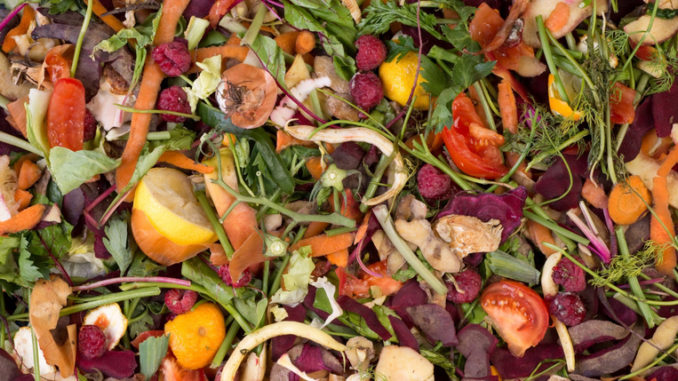
Council chiefs are looking to introduce weekly waste food waste collections in the county.
North Yorkshire Council says it plans to lobby the Government to confirm funding arrangements to allow it to move to weekly food waste collections.
Due to changes in the Government’s legislation, North Yorkshire Council, alongside other local authorities in England, is required to introduce a free separate weekly food waste collection.
Unlike some other authorities, North Yorkshire Council says it already has an existing residual waste contract with AWRP SPV Ltd, which runs until 2043, and has therefore been granted an extension to bring in the changes beyond the Government’s target date of 2025.
North Yorkshire Council’s executive had hoped to be able implement the changes by 2030, but questions remain about how the service would be paid for, meaning further commitments are needed if food waste collections are to be rolled out before 2043.
A letter from the leader of the council, Cllr Carl Les, has been sent to the Secretary of State for Environment, Food and Rural Affairs, Thérèse Coffey, asking for urgent clarification on funding arrangements.
The change to weekly collections could cost the council up to an extra £6.4 million annually.
The Department for Environment, Food and Rural Affairs (Defra) has indicated these collection costs could be covered by its New Burdens funding but that commitment does not currently extend beyond 2025.
North Yorkshire Council’s executive member for managing our environment, Cllr Greg White, said: “We have pledged to try and be carbon net zero by 2030 and to do our bit to help the whole county reach the ambitious goal of being carbon negative by 2040.
“The change to a weekly food collection would give us a unique opportunity to accelerate this process.
“We want to introduce these changes long before 2043, but at the moment there is too much uncertainty around how the new collections will be paid for. At a time when the council is facing a deficit of £30 million alone in its first year, we cannot commit to that level of spending without guarantees from the Government that our costs will be covered.
“Should we get that commitment, then we will look to bring the weekly food waste collections in earlier and start engaging with residents about the changes.”
A weekly food waste collection would free up capacity in residual waste bins and open the door for an improved recycling collection service.
By collecting food waste separately, it increases the amount that can be into green electricity via an anaerobic digester. It will also help to reduce the amount of rubbish requiring burning, therefore cutting the amount of harmful emissions being produced and producing a compost-like product that is beneficial to agriculture.
By running weekly food waste collections and harmonising the service across the county, it would reduce the carbon dioxide equivalent output by between 2,800 tonnes to 3,300 tonnes each year compared to the current arrangements where food waste is recovered from residual waste at Allerton Waste Recovery Park.
It would also allow the council to consider further options for residual waste, which could lead to 7,000 tonnes of carbon savings every year.
The existing arrangement at Allerton Waste Recovery Park already puts North Yorkshire Council ahead of many local authorities when it comes to recovering food waste and reducing harmful emissions. The move to weekly collections would extend the environmental benefits even further.
Refuse collections in the county were previously run by the seven former district and borough councils, which along with North Yorkshire County Council, were replaced by North Yorkshire Council on April 1.
North Yorkshire Council has pledged to reduce its carbon dioxide emissions to net zero by 2030 and is also involved in a bid for the region to become the first in the country to be carbon negative by 2040. This would mean more carbon dioxide emissions would be removed from the atmosphere than are emitted.
The work to achieve carbon negativity is being led by the York and North Yorkshire Local Enterprise Partnership and is involving the council and other key partners such as the National Park authorities for the Yorkshire Dales and North York Moors.


Be the first to comment